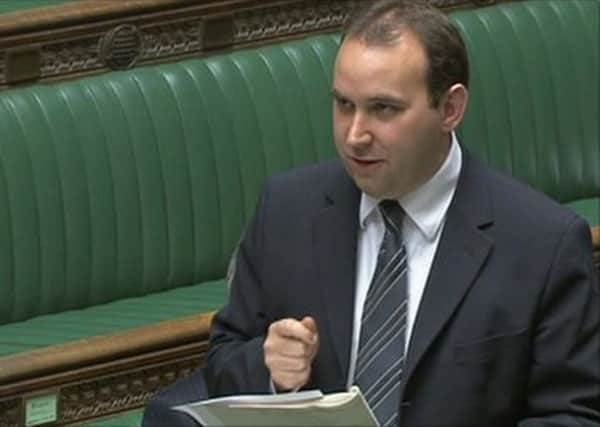David Maddox: Miliband reshuffle brings in Docherty


So while David Cameron’s enforced ministerial reshuffle after the Maria Miller expenses scandal hit the front pages, Ed Miliband’s pre-Easter mini reshuffle did not even register a footnote, but nevertheless gave a good indication of the key legislative battleground after the Queen’s Speech later this year – the issue of keeping MPs honest and on their toes.
The switch in the Labour ranks saw Thomas Docherty, MP for Dunfermline and West Fife, move from shadow agriculture minister to shadow deputy leader of the House. Angela Smith moved in the opposite direction.
Advertisement
Hide AdAdvertisement
Hide AdSmith will be less happy. The junior shadow agriculture post is one where Labour leaders put MPs they either do not know what to do with, actively dislike or want to shut up, usually in the hope they will give up and go away. Let’s face it, farming is not exactly Labour’s strong suit and since Miliband became leader there has been a steady turnover in MPs holding the post, including four Scottish MPs – Docherty, Fiona O’Donnell, William Bain and Tom Harris. Most holders have ended up returning to the back-benches.
So Docherty, who last month flirted with the sack by attacking Better Together, but is rated by the leadership, has good reason to rejoice at what can only be seen as a promotion.
But the switch was a tactical move by Miliband as he prepares for the aftermath of that other reshuffle, the Tory one triggered by Miller. When the Queen delivers her government’s programme for 2014-15 on 4 June, the bill to allow MPs to be recalled by their constituents is likely to stand out. It was a promise in both Tory and Lib Dem manifestos but mysteriously has never been put through parliament, but now the latest scandal has added to the pressure on Cameron and Nick Clegg to keep their word.
Given that there will be a general election in May 2015, less than a year after the Queen’s Speech, then it is also likely that a recall bill is the only substantial thing the government can achieve in that time.
The argument will be whether a recall vote needs to be triggered by a recommendation from the Commons standards committee, which is the government’s preferred option, or, as in the US, by enough constituents signing a petition. Few have confidence in the standards committee made up of MPs, which diminished its public standing by reducing Miller’s expenses to pay back from £45,000 to £5,800. Labour will push for the US version.
Into this debate now steps Docherty who, by happy coincidence, had a private members recall bill earlier in the parliament and is already well prepared to take the argument to the coalition.